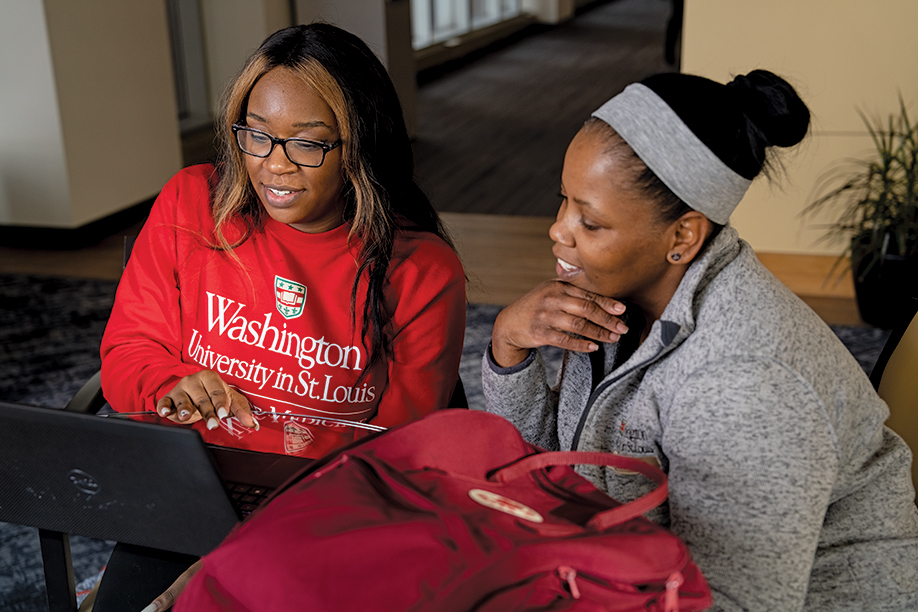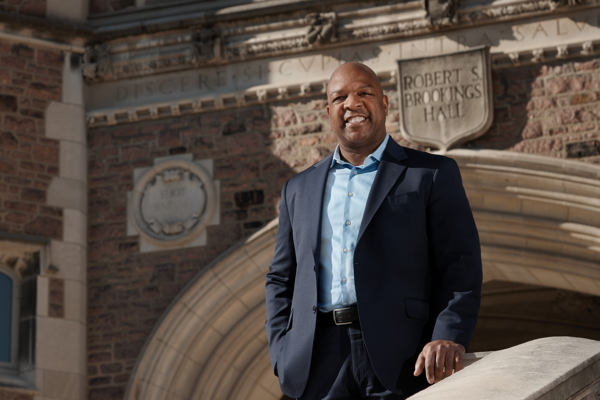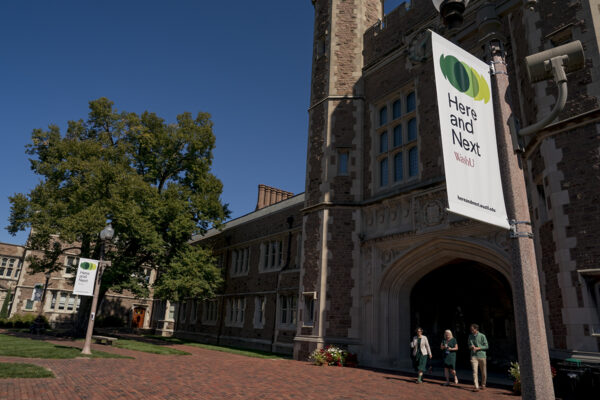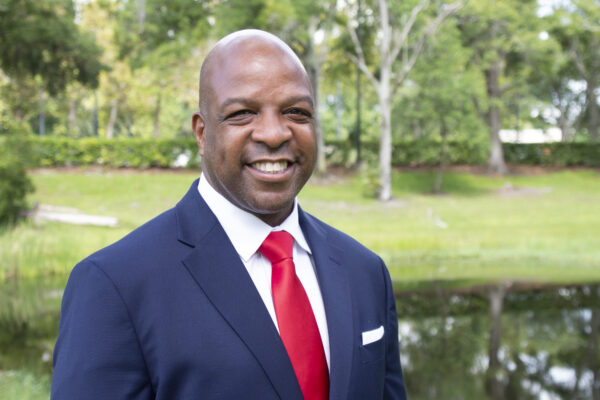The St. Louis economy is changing fast, and so is the new School of Continuing & Professional Studies at Washington University. Formerly known as University College, the School of Continuing & Professional Studies (CAPS) is launching new programs to help St. Louisans of all ages and backgrounds gain the skills needed for high-demand, high-paying jobs in data, health care and management.
“We are committed to meeting educational needs and providing career pathways for St. Louisans who have historically not had access to a WashU education.”
Sean Armstrong, Dean of CAPS
“We are committed to meeting educational needs and providing career pathways for St. Louisans who have historically not had access to a WashU education,” says Sean Armstrong, dean of CAPS. “That’s not to say the work will be easy. But if a student makes a commitment to an education, we’ll make a commitment to their success.”
CAPS is introducing a variety of new programs, from short apprenticeships to advanced degrees, each tailored to meet the needs of both adult learners and employers. One early initiative is a collaboration with the nonprofit BioSTL, which has obtained a grant from the Missouri Department of Economic Development to train a new generation of lab technicians and bioscience workers. Students will learn on the job, earning a paycheck while gaining needed skills.
The school is also introducing more programs like its successful pre-nursing program, which was developed in partnership with the Goldfarb School of Nursing at Barnes-Jewish College. Currently, 100 School of Medicine employees are using their tuition benefit to take classes in anatomy, algebra, psychology and other prerequisites. Upon graduation, students are eligible to enroll in the Goldfarb Weekend/Evening Option, a three-year bachelor’s of nursing program.
Elizabeth Fogt, director of advising and student services at CAPS, says the program addresses two big challenges: the region’s nursing shortage and the lack of affordable pathways into the field.
“For so long, we heard our employees say, ‘I want to provide better for my family, but there isn’t a way for me to do it without quitting my job,’” Fogt says. “Our partnership with the Goldfarb School of Nursing gives people the opportunity to move forward and serves as a model for community partnerships we can develop in the future.”
The new School of Continuing & Professional Studies is part of Chancellor Andrew D. Martin’s broader mission to make WashU “in St. Louis, for St. Louis.” And CAPS has the freedom and flexibility to better focus on the needs of St. Louisans, whether they are inmates studying statistics through the Prison Education Project, retirees exploring Hindu art at the Osher Lifelong Learning Institute, teachers from the St. Louis Teacher Residency earning their master’s degrees in teaching and learning, or, for that matter, university employees taking French or nonprofit management. Some 1,150 students are currently enrolled in CAPS.

“St. Louis has some of the most talented, brightest people I’ve ever met,” says Armstrong, himself a product of the continuing education program at UMass Dartmouth. “The potential for talent development here is generational.”
Recent WashU graduate Jamie Kenyon, BS ’23, exemplifies that potential. In a few years, Kenyon will retire from Metropolitan Saint Louis Transit Agency, where he has served as a mechanic for more than two decades. His degree in sustainability has prepared him for the next phase of his life as a public transit advocate.
“The work was hard, but I was able to do it on my own time and with every resource I needed,” says Kenyon, whose coursework included classes in ecology, law and policy. “I’ll tell anyone who is thinking about going to school to go for it. Because whether you do it or not, time is going to slip by.”
Armstrong expects more and more working adults to enroll in continuing education programs as the economy rapidly evolves and lifespans grow longer. The best programs, he says, will grow with their communities to meet the needs of the modern learner.
“Our goal is to provide on-ramps and off-ramps throughout a person’s life,” Armstrong says. “Some people may come to us to learn a specific skill for a specific job and then come back for a certificate or degree as their career advances. Others want to study a field that didn’t even exist when they were in school. And then some people want to learn a foreign language or about the history and complexities of jazz music.
“The School of Continuing & Professional Studies offers all of that. My intent is for the school to become a hub for the St. Louis community where learners can return again and again.”



